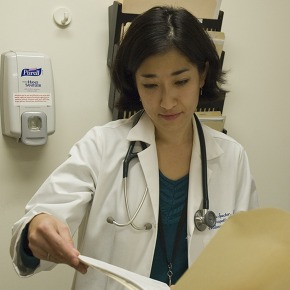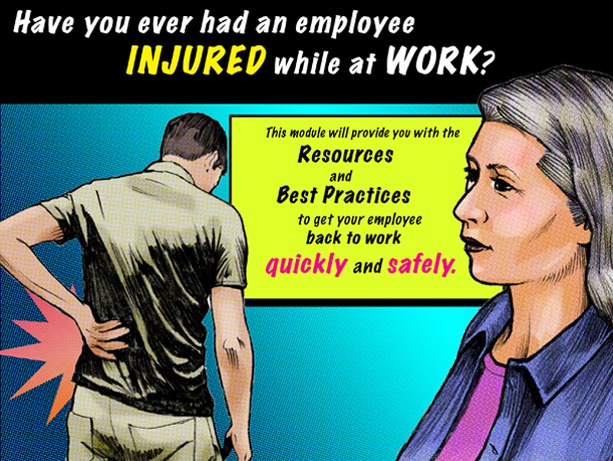In about a cup of coffee's worth of time, a difficult task might become easier for caregivers' supervisors at Harborview Medical Center. A newly developed 15-minute training module can help them manage workplace injuries and get employees back on the job quickly and safely.

June Spector is an occupational health specialist at Harborview. Photo by Sarah Fish
Why healthcare?
"The highest number of people missing work due to injuries is in the university's medical centers," said June Spector, who led a small team in developing the module. She is a physician in Harborview's Occupational and Environmental Medicine Clinic and an assistant professor in the Department of Environmental and Occupational Health Sciences.
"Healthcare is tough work," Spector said. "Nurses, medical assistants, people moving patients tend to get injured pretty frequently."
Getting back to work post-injury is important for several reasons. A steady income provides not only financial security for individuals and families, but also a sense of self-worth, and it is often how people self-identify: "I'm a nurse. I take care of patients."
Studies suggest that injured workers that delay returning to work are at risk of permanent disability, with significant costs to the their financial independence and psychosocial health as well as to the state's workers' compensation program.

A slide from the new supervisor training module on returning employees to work quickly and safely after an injury. Illustration by Kate Sweeney
A supervisor can ensure that injuries are reported and workers are treated, and can modify job responsibilities, too. However, a UW survey of supervisors indicates that they lack confidence in facilitating injured employees' return to work, and lack awareness of resources that they or the employee might need.
Preliminary results suggest that the training module is effective, Spector said. Evaluations show that supervisors who have seen the training module feel more confident about the process of bringing an injured employee back to work.
The next step is to compare injured employees' leave records before and after the training, she said. The researchers will look at the number of people out on disability due to injury, length of absence, and the costs associated with the leave.
The UW hopes to adapt the training module for use across the university. Spector said the module's scenarios and characters could be customized for other campus departments, such as facility services, whose employees maintain university buildings and grounds – and who also experience high rates of missed work due to injury.
The project was funded by the Washington Safety and Health Investment Projects. Project manager Michael Oberg, graduate student Lisa Hart, and Dr. Nicholas Reul, acting instructor and physician in the OEM clinic, were also involved in the module's development and assessment.
